International Discussion with the theme "Employment in ASEAN: Opportunities and Challenges."
- Phuong Nhi - ACTV
- July 23, 2024
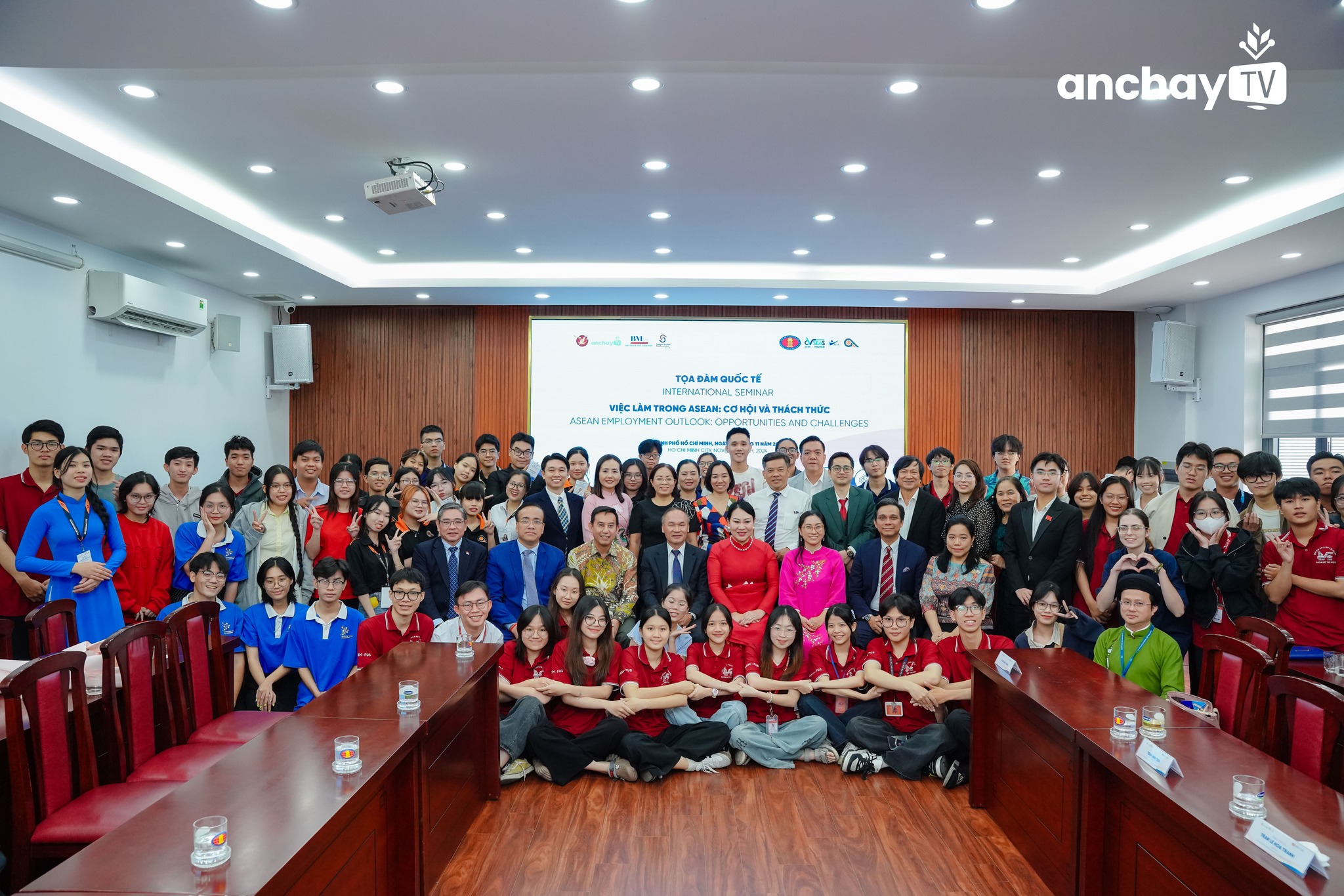
Description
In the context of ASEAN becoming one of the world’s most dynamic economic hubs, employment has emerged as a top priority. To explore and deeply discuss the opportunities and challenges within the regional labor market, the Vietnam and Southeast Asia Research Center, in collaboration with the Center for Entrepreneurship and Employment, will organize an international discussion titled “Employment in ASEAN: Opportunities and Challenges.” This event is scheduled to take place at the University of Social Sciences and Humanities, Ho Chi Minh City, on November 26, 2024.

The program featured the presence of Mr. Phonesy Bounmixay, Consul General of the Lao People’s Democratic Republic in Ho Chi Minh City. In his welcome speech, he stated:
“The ASEAN region, with over 690 million people, is not only home to an abundant labor market but also a region with significant development potential. However, we are also facing numerous challenges, including the need to improve workforce quality, changes in labor structure, the impact of climate change, and addressing issues related to equal employment opportunities. Therefore, today’s discussion serves as a platform to delve deeper into the opportunities that ASEAN countries can leverage to build a sustainable workforce.”
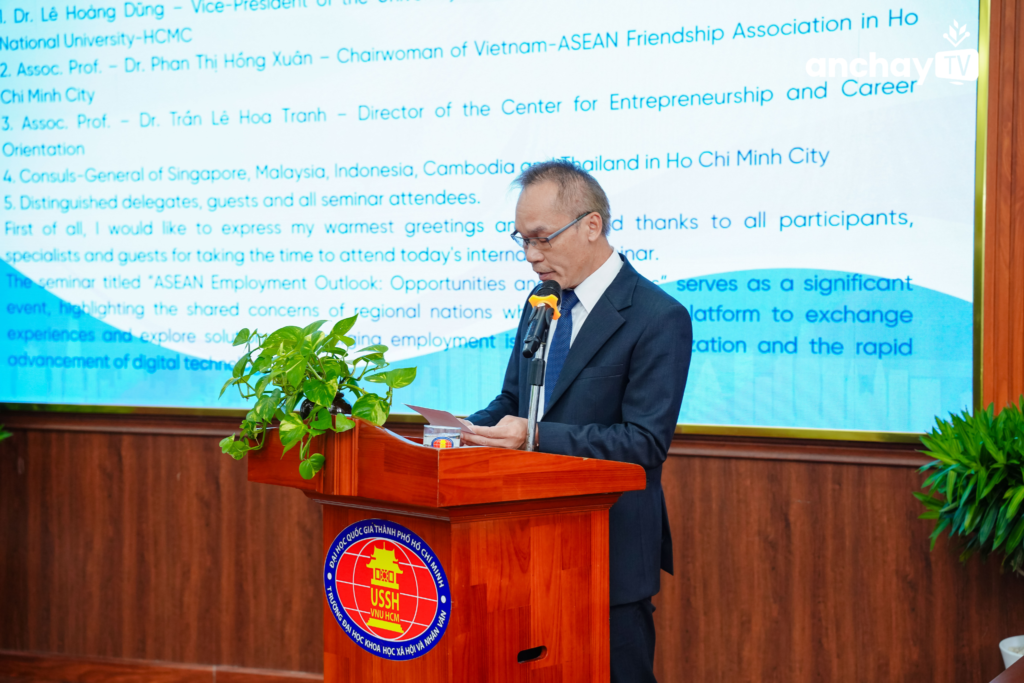
The discussion featured four key presentations focusing on ASEAN workforce development policies, changes and challenges in the labor market of Vietnam and ASEAN as a whole, and proposed solutions to adapt to new trends.
In the first presentation, Assoc. Prof. Dr. Phan Thi Hong Xuan, Director of the Vietnam and Southeast Asia Research Center, delivered insights on ASEAN workforce development policies. She highlighted the cultural diversity and unique characteristics of ASEAN countries, linking these aspects to the opportunities and challenges faced by students in social sciences and humanities as they enter the international labor market.
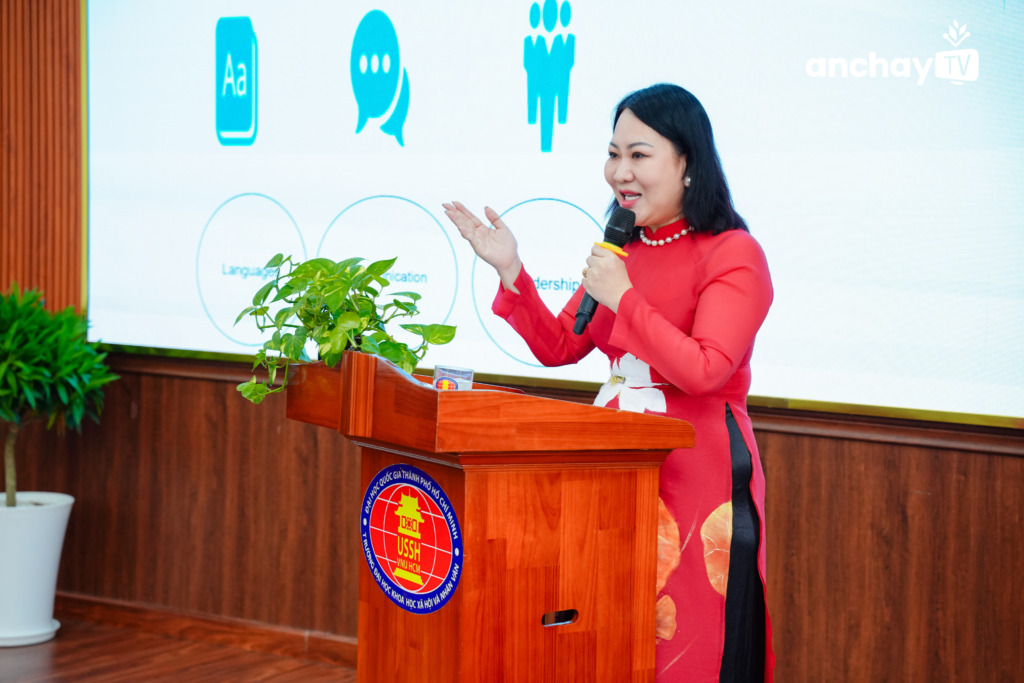
The second presentation, titled “Human Resource Training in Singapore: Opportunities and Challenges,” was delivered by Mr. Pang Te Chang, Consul General of Singapore in Vietnam. During the session, he highlighted that the primary concern for today’s workforce is job security. People worry not only about their current employment but also about their future prospects. To address this, the Singaporean government has introduced an initiative called SkillsFuture, aimed at ensuring workers can remain employable throughout their careers and even beyond, thereby addressing job security concerns.

The next presentation was delivered by Mr. Angus Liew Bing Fooi, Chairman of the Malaysian Business Association in Vietnam and General Director of Gamuda Land JSC. His topic focused on “Smart Cities: Opportunities and Challenges for Vietnam’s Workforce in the ASEAN Community.”
He emphasized the future opportunities in the Vietnamese market, noting that Vietnam has the second youngest labor force in Southeast Asia. However, challenges remain, such as a lack of advanced skills and language barriers. To address these issues, he proposed increased investment in vocational training, learning initiatives, and workforce development programs.
Mr. Liew highlighted the importance of greater investment in education for students and teachers, improving rural access to education, and providing financial support for education. He believes these measures will unlock future opportunities for Vietnam’s labor market and prepare a skilled workforce to meet emerging trends.

In the final presentation, Mr. Luu Nhat Tuan, Vice Chairman of the Ho Chi Minh City Culinary Association, addressed the topic “From Employment Opportunities in ASEAN to the Mission of Promoting Vietnamese Identity Through Cuisine.”
He emphasized that for young Vietnamese students, joining the labor market in ASEAN countries is not only a chance to advance their careers but also an opportunity to represent Vietnam and embody the nation’s image in international exchanges and integration. Promoting Vietnamese cuisine globally is not merely a cultural mission but also a sustainable economic strategy, contributing to elevating the country’s status on the world map.

Following the presentations by the four speakers, the discussion continued with an engaging and dynamic panel session that captured the attention of delegates and participating students. Beyond addressing the opportunities and challenges highlighted earlier, this session created a meaningful space for researchers, university leaders, and especially students to exchange ideas and share perspectives with representatives from ASEAN Consulates General.
This was an opportunity for all parties to analyze current realities, explore development potentials, and express aspirations for enhancing both the quality and quantity of job opportunities. The discussion session was not merely an information-sharing forum but also a platform for connecting creative minds, contributing to shaping a more sustainable and enriched employment future for young people in Vietnam and ASEAN.
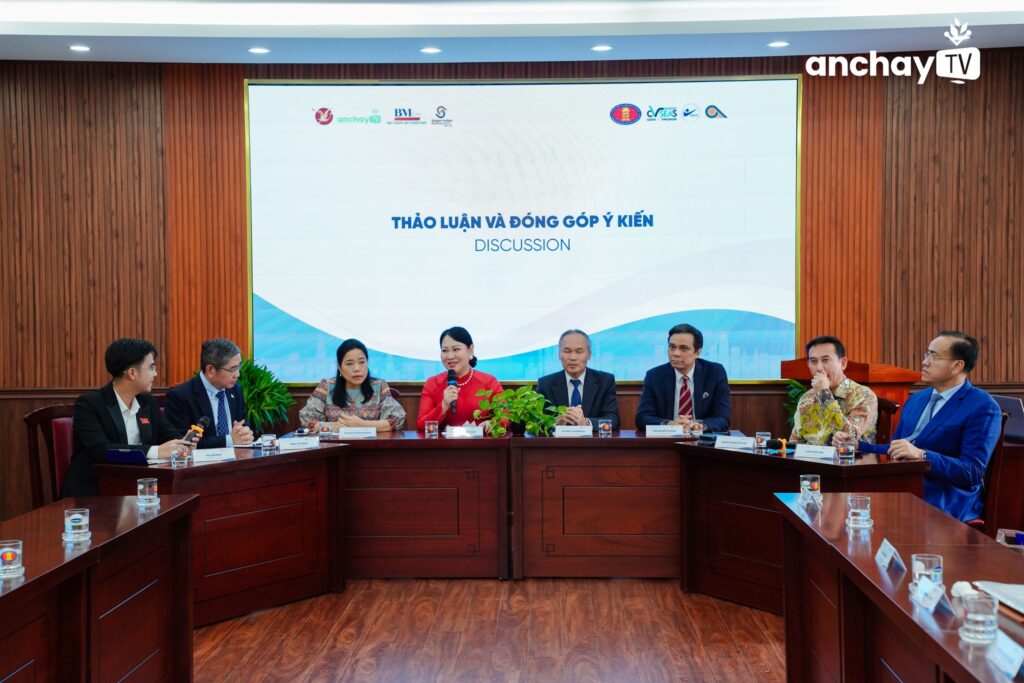

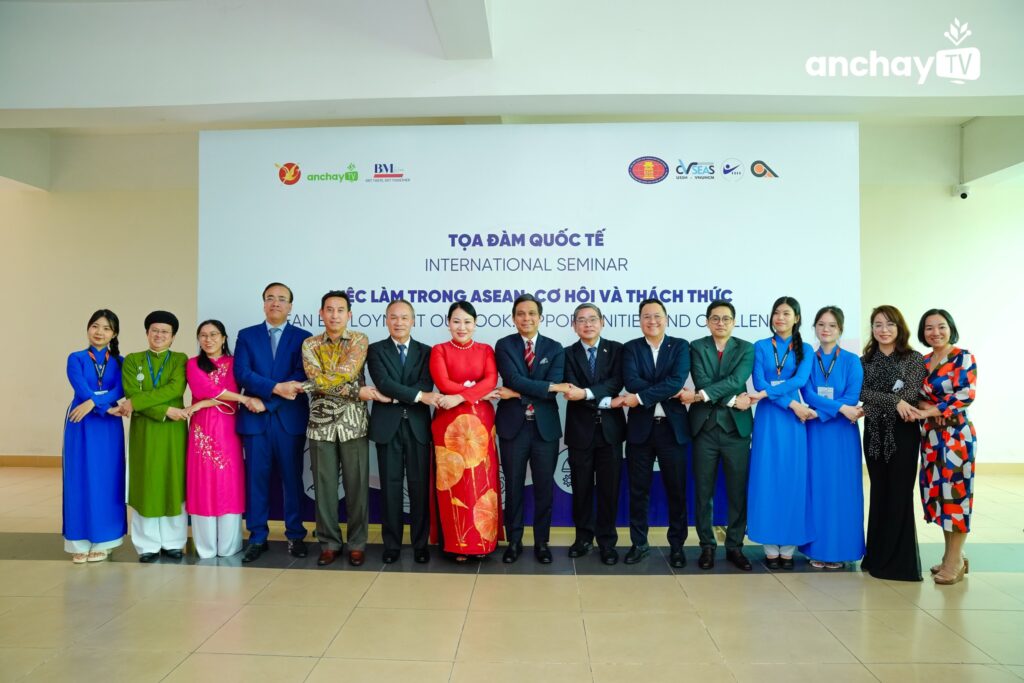
Students from the University of Social Sciences and Humanities, Ho Chi Minh City, shared with Anchay TV their special interest in exploring new career ideas aligned with sustainable values, environmental protection, and public health care. They attended the discussion not only to learn about career opportunities in ASEAN but also to seek ways to apply these values in practice, contributing to the promotion of a healthy lifestyle.
Share to :
Be the First to Know, Get Exclusive Content and Updates
Stay ahead and never miss out on our latest releases and special offers. Here’s how you can get exclusive content and updates
💚 Ăn Chay TV is the first veg media channel in Vietnam, licensed by the Vietnam Television Broadcasting Authority with license number 10GP-BTTTT.
